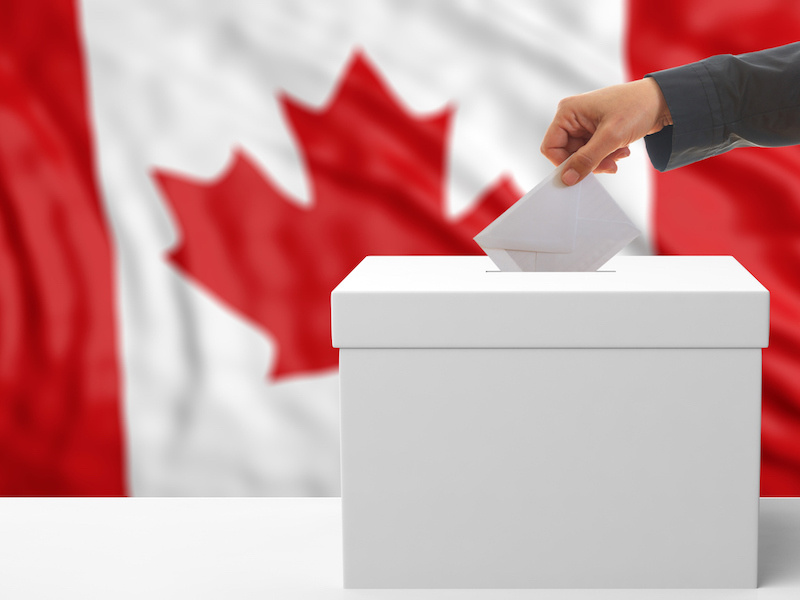
This story was updated on March 31 to add new announcements from the Conservative Party.
Canadians are set to vote on April 28, after new Prime Minister Mark Carney called a snap election on March 23. None of the major parties have released platforms yet, but the leaders have made campaign pledges on taxes. Here’s a look at what the Liberals, Conservatives and New Democrats have proposed so far.
Liberals
- Income taxes: Carney has proposed to reduce the federal tax rate for individuals in the lowest tax bracket (earning up to $57,375 per year) by one percentage point to 14%. In a release, the Liberal Party said the move would save two-income families up to $825 per year.
- Capital gains tax: Last week, Carney announced he was cancelling the proposed hike in the capital gains inclusion rate, which was originally supposed to take effect as of June 25, 2024, then deferred to Jan. 1, 2026. The hike was to apply to all corporations and trusts, as well as individuals reporting more than $250,000 in capital gains in a year. It would have seen them pay tax on two-thirds of the gain, up from one-half. While he scrapped the proposed tax hike, Carney announced the government will maintain the proposed increase in the Lifetime Capital Gains Exemption limit to $1.25 million (from $1 million) on the sale of small business shares and farm and fishing property.
- Housing: Carney has proposed to eliminate the GST on all homes up to $1 million for first-time buyers.
- Carbon tax: In mid-March, Carney scrapped the consumer carbon tax effective April 1, but not the industrial carbon tax.
Conservatives
- Income tax: Conservative Party leader Pierre Poilievre has pledged to cut the federal tax rate in the lowest income bracket to 12.75% from 15%. In a release, the Conservatives said this would save the average Canadian earning $57,000 a year $900, and a two-income family around $1,800 annually.
- Poilievre has also proposed to allow seniors to earn up to $34,000 tax-free, or $10,000 more than is currently the case. The release did not specify how this would be achieved. Seniors can currently claim a basic personal amount of up to $15,705 for the 2024 tax year as well as an age amount (or non-refundable tax credit) of $8,790 for up to $44,325 of annual income. That adds up to $24,495 of tax-exempt income. Poilievre also proposed to extend the age cutoff for RRSP contributions by two years, to allow seniors to continue to add to their accounts until the age of 73.
- On March 29, Poilievre said the Conservatives would allow trade workers to write off the full cost of food, transport and accommodation needed to travel from job to job, now capped at $4,000 per year. He also pledged to end write-offs for executive travel via “luxury corporate jets,” limiting write-offs to the “equivalent of a commercial flight.”
- Capital gains tax: On March 30, Poilievre proposed to eliminate the capital gains tax for any business or person that reinvests the proceeds in Canada. This would be available for any capital gains reinvested between July 1, 2025 and Dec. 31, 2026, he said in a release, although if the move results in a “major economic boom,” the Conservatives would make the it permanent. For companies that reinvest capital gains, the Conservative Party is offering to defer capital gains tax until “investors cash out or move the money out of Canada.” This break would be available on any reinvestments made until the end of 2026. Poilievre said the party’s Canada First Reinvestment Tax Cut would incentivize investment in Canada and discourage investors from moving money outside of the country.
- Housing: Poilievre has proposed eliminating the GST on new homes under $1.3 million, which the Conservative Party said will save homebuyers up to $65,000 overall, and roughly $3,000 per year on mortgage payments.
- Carbon tax: Poilievre has pledged to eliminate the industrial carbon tax, as well as the consumer carbon tax.
- Investing: Poilievre has proposed an increase in annual TFSA contributions by $5,000 per year — but only for investment in Canadian companies. The current limit is $7,000 annually. In a release, the Conservatives said the tax system “already defines Canadian investments, and a Poilievre government will create a definition that lets financial institutions and advisors label which stocks, mutual funds and other investments can go into your Canada First TFSA Top-Up.”
New Democratic Party
- Income tax: NDP leader Jagmeet Singh has promised to increase the basic personal amount for anyone earning less than $177,882 to $19,500. The party estimates this would save $505 annually for Canadians earning $19,500, to $177,882. At the same time, the NDP would decrease the basic personal amount for higher income brackets to $13,500, and eliminate it completely for individuals making more than $235,632.
- Capital gains tax: The party would also reinstate the capital gains inclusion rate hike first proposed, and now scrapped, by the Liberals.
- Consumer taxes: The NDP has pledged to scrap the GST on all essentials, such as grocery store meals, diapers and strollers, as well as on monthly bills including cell, internet and heating bills. It estimates this would save the average family of four $448 per year. The NDP would also exempt purchases of Canadian-made vehicles from GST.
With files from The Canadian Press.